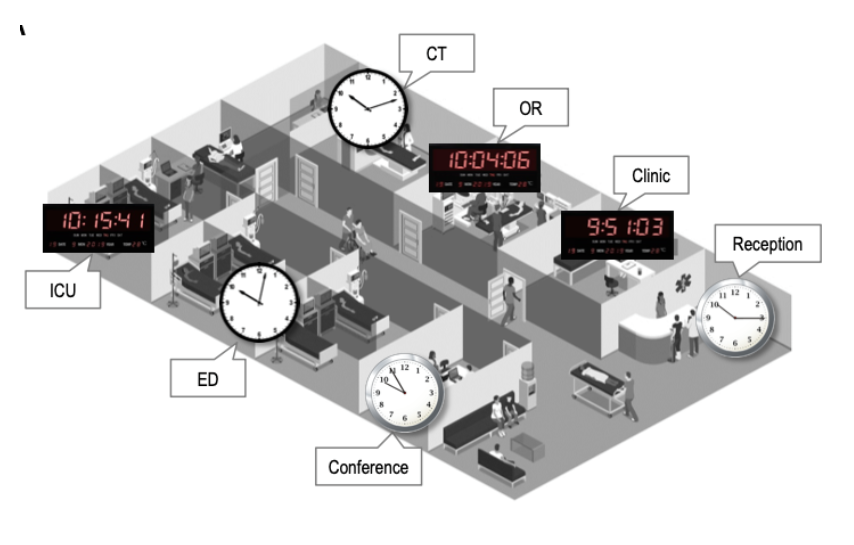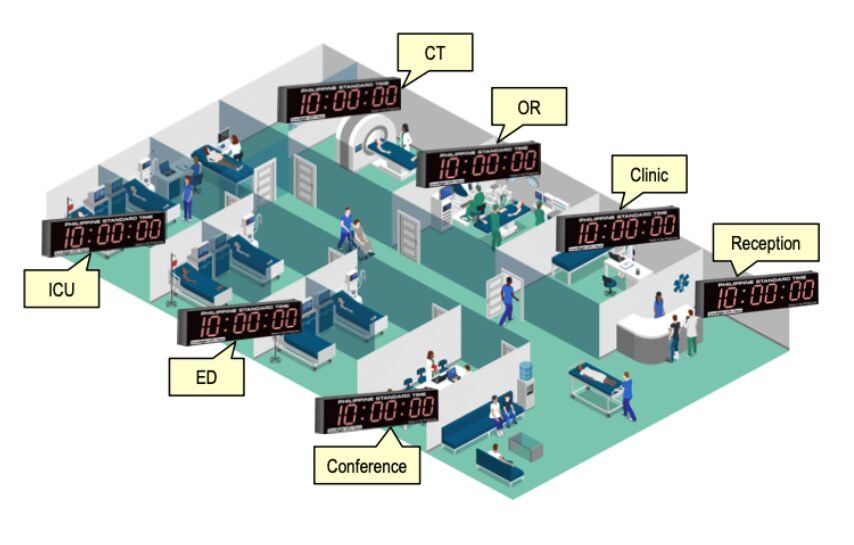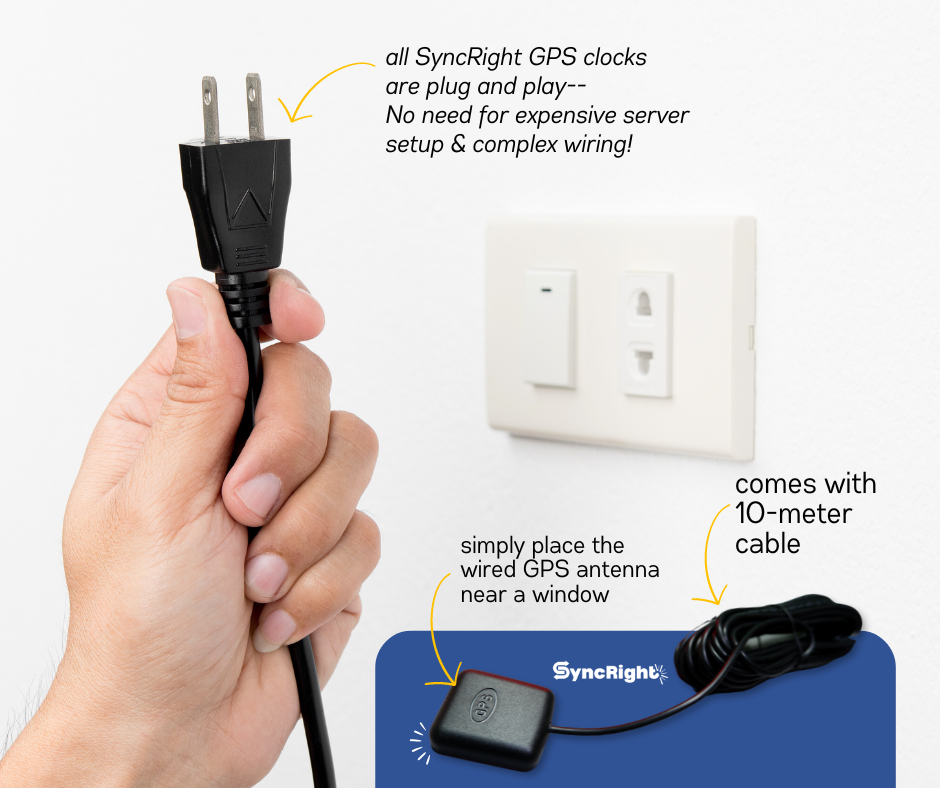In the world of business, the adage “time is money” rings truer than ever. Every tick of the clock represents an opportunity – an opportunity to create, to innovate, to serve customers, and ultimately, to generate revenue. However, the value of time can easily be squandered through a lack of punctuality and inefficient time management.
For human resource directors and business leaders, fostering a culture of punctuality is a strategic imperative. It’s not just about good manners; it’s about optimizing productivity, boosting profitability, and gaining a competitive edge in today’s fast-paced business landscape. This article delves into the profound impact of punctuality on the bottom line and offers a data-driven approach to systematizing time management, emphasizing the pivotal role of GPS clocks in achieving time synchronization.
The Hidden Costs of Tardiness
While the occasional late arrival might seem insignificant, chronic tardiness can have a ripple effect throughout your organization. Here’s a breakdown of the hidden costs:
- Lost Productivity: Research shows that employees who are frequently late waste an average of 3.5 hours per week. This translates to millions of pesos in lost productivity annually for even a small company.
- Financial Losses: In the Philippines, traffic congestion alone costs the economy billions of pesos each day due to lost productivity and increased fuel consumption. While not directly related to tardiness, it highlights the economic impact of time-related issues.
- Decreased Morale: When some employees consistently arrive late, it can breed resentment and frustration among those who are punctual, eroding team morale and hindering collaboration.
- Increased Stress: The rush and anxiety associated with being late can contribute to employee burnout, absenteeism, and even health problems, ultimately affecting your company’s productivity and bottom line.
- Damaged Reputation: A reputation for tardiness can damage your company’s image, making it harder to attract top talent and retain valuable clients.
The Punctuality Payoff: Boosting Productivity and Profitability
On the flip side, organizations that prioritize punctuality reap significant rewards:
- Enhanced Productivity: Employees who value time tend to be more focused, efficient, and results-oriented. Punctuality can lead to increased output, faster project completion, and greater innovation.
- Improved Collaboration: When team members respect each other’s time, meetings are more productive, projects stay on track, and collaboration thrives. This fosters a positive and respectful work environment, leading to increased employee engagement and retention.
- Enhanced Reputation: A reputation for punctuality and reliability can attract top talent, build stronger client relationships, and elevate your brand image.
- Reduced Stress: A culture of punctuality minimizes the last-minute rush, alleviating stress for both employees and managers. This contributes to a healthier and more engaged workforce.
Real-World Applications: Punctuality in Action



Real-world examples illustrate the power of punctuality:
- Virgin Atlantic: The airline implemented a punctuality improvement program that led to a 40% reduction in flight delays, improving customer satisfaction and boosting revenue.
- Toyota: The automotive giant’s “just-in-time” manufacturing philosophy, which relies on precise timing and coordination, has been a key factor in its success.
- Google: The tech company’s data-driven approach to time management has been instrumental in its ability to maintain its competitive edge and drive innovation.
A Systematized Approach to Punctuality
To foster a culture of punctuality and optimize time management, consider the following strategies:
- Lead by Example: Leaders who value their own time and that of their employees set the tone for the entire organization. Be punctual yourself, and emphasize the importance of timeliness in your communication and actions.
- Set Clear Expectations: Establish clear policies regarding punctuality and attendance. Communicate these expectations during onboarding, performance reviews, and team meetings. Make it clear that timeliness is a core value.
- Track and Analyze Data: Use time-tracking software or other tools to gather data on employee attendance, project timelines, and meeting durations. Analyze this data to identify patterns and areas for improvement.
- Provide Training and Resources: Offer workshops on time management techniques, project planning, and prioritization. Encourage employees to utilize tools like calendars, project management software, and productivity apps.
- Incentivize Punctuality: Reward employees who consistently demonstrate good time management. This could include bonuses, extra time off, or other recognition programs. Positive reinforcement can be a powerful motivator.
- Address Underlying Issues: If tardiness is a recurring problem, investigate the root causes. Are there systemic issues like inadequate staffing or unrealistic deadlines that need to be addressed?
- Foster a Supportive Environment: Encourage open communication about time challenges and create a culture where employees feel comfortable seeking help if they’re struggling with time management.
The Power of GPS Clocks: Synchronizing Your Organization
One of the most effective ways to systematize punctuality is through the implementation of GPS clocks. These precision instruments synchronize with atomic clocks aboard GPS satellites, providing unparalleled accuracy and a unified time reference for your entire organization.
Here’s how GPS clocks can transform your workplace:
- Eliminate Time Discrepancies: With GPS clocks, every clock in your organization will display the exact same time, eliminating confusion and ensuring everyone is on the same page.
- Automatic Updates: GPS clocks automatically adjust for daylight saving time and leap seconds, eliminating the need for manual adjustments and reducing the risk of human error.
- Philippine Standard Time Compliance: Easily configure your GPS clocks to adhere to the Philippine Standard Time (PST) Act of 2013, ensuring legal compliance and simplifying payroll and timekeeping processes.
- Enhanced Data Collection: GPS clocks can integrate with time and attendance systems, providing accurate data for payroll, project management, and performance evaluations. This data can be invaluable for identifying trends, optimizing processes, and making informed business decisions.
- Increased Efficiency: With accurate timekeeping, you can streamline processes, optimize scheduling, and minimize downtime. This translates to increased productivity and ultimately, higher profitability.

Healthcare facility using just any digital clock

Healthcare facility using synchronized GPS clocks across all rooms and departments
Real-World Application: GPS Clocks in a Hospital Setting
A major hospital in the Philippines implemented GPS clocks throughout its facility, resulting in a significant improvement in patient care. With all departments synchronized to the same precise time, the hospital was able to optimize scheduling, reduce wait times, and ensure timely delivery of critical medications and treatments. This led to improved patient outcomes and increased satisfaction.
Invest in Time, Invest in Success
Punctuality is an investment that pays off in dividends. By taking a data-driven approach to time management, fostering a culture of punctuality, and leveraging the power of GPS clocks, you can unlock your organization’s full potential. Remember, time is money, and every second counts.









